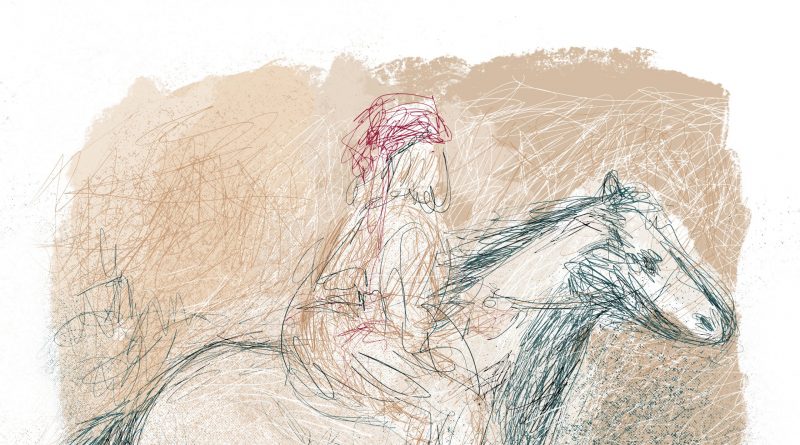The 1821 Greek Revolution as a timeless thematic in modern Greek literature: From Dionysios Solomos to the first post-war generation
The 1821 Revolution and its influence on modern Greek literature was a topic explored during the celebratory publications, articles and radio broadcasts on the occasion of the bicentennial. The poems of our national poets were re-read and discussed, while thematic anthologies were published with poems about the 1821 Revolution.[1] The anniversary was an occasion to review the literature produced by the time, from Dionysios Solomos and Andreas Kalvos, to the demotic and “kleftika” songs, about which there have been very valuable individual studies and interesting discussions. At the same time, however, a publication-anthology of poems by Odysseus Elytis from Ikaros publications, which was edited and composed by the poet Ioulita Iliopoulou, is of particular interest. On the occasion of the bicentennial anniversary of the Revolution, a publication with poems by Elytis – dated to the historical event – on Greekness was an important celebratory event. So, what is the relationship of the Revolution with the literature that succeeded it and in what other time periods can we locate texts about the liberation of Greece and the elements of Greekness?
In an interview with Katerina I. Anesti, Ioulita Iliopoulou mentions that the bicentennial anniversary was a trigger for the anthology, and how the review of the history of the Greek state led her to the poems of Odysseus Elytis. The thought of Ioulita Iliopoulou is of particular interest; it is enough to think that the celebration of the Revolution of 1821 marked a period of reflection on the elements of Greekness, as they were formed in the last two hundred years. In fact, the anniversary is not only about the start of the Revolution. It is no coincidence, after all, that in the works of our post-war poets there are references to kleftika songs and in general to the uprising of the Greek people in 1821. One of the most typical examples is the first work published by the post-war poet Michalis Katsaros, with the name Messolonghi in 1949. The left-wing poet, inspired by the Greek revolution and the texts of Dionysios Solomos and Kostis Palamas, composes an extensive poem which connects the 1821 Revolution with the Greek Civil War and the struggles of the Left-wing. In his work, Michalis Katsaros describes the dead of the Revolution emerging from the sea waters of Messolonghi, rising from the earth and descending from the sky, in order to join his contemporary fighters to achieve the conquest of real freedom. After all, the poet composed Messolonghi while in the homonymous city, having temporarily retreated to write.
Messolonghi is considered a major work of our great post-war poet. The trans-revolutionary theme spans through an entire book, and is not limited to references or individual poems. Therefore, it is worth reflecting on the role of the celebrations of the two hundred years since the 1821 Revolution, as they extend to essential parts of the modern Greek literature diachrony. This is proven, moreover, by the choice of Ioulita Iliopoulou to compose an anthology of the later Odysseus Elytis on the occasion of the Greek Revolution.
It is worth mentioning that the reflection on the role of the 1821 Revolution in our poetry did not begin with the great national anniversary. Pantelis Boukalas, in his article in Kathimerini, refers to the anthologies created exclusively with texts about the Greek Revolution, by Ilias Gris in 2011 and Costas Stamatis in 2020. He concludes with the only poets who have not spoken about the 1821 Revolution in their poetry, among them the post-war poet Manolis Anagnostakis, a poet of the same era and ideology with Michalis Katsaros. Perhaps, then, a key question that arises concerns the reasons why an artist decides to write about ’21. And, by extension, what could prevent them.
Anna Palikidou, PhD candidate in modern Greek philology at the Department of Greek Philology, Democritus University of Thrace
[1] The poetry of the Greek Revolution: demotic song – Modern Greek poets from Solomos and Kalvos until today, Patakis Publications

